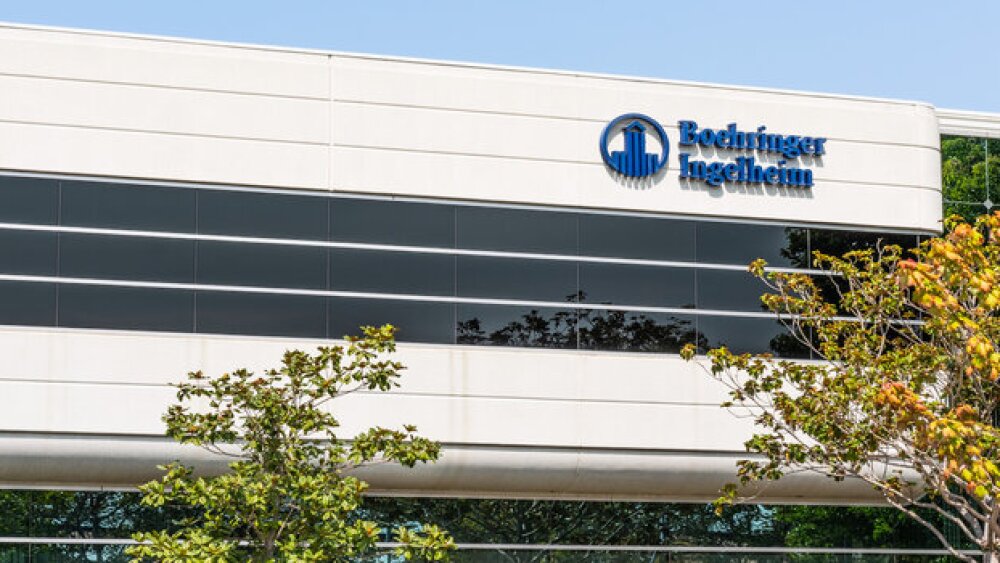German biopharma Boehringer Ingelheim is now offering an unbranded version of its interchangeable biosimilar to the AbbVie blockbuster arthritis drug at a deep discount.
Pictured: Boehringer Ingelheim office in California/iStock, Sundry Photography
Boehringer Ingelheim on Monday unveiled lower wholesale pricing for its adalimumab-adbm injection, the company’s interchangeable biosimilar to AbbVie’s blockbuster chronic inflammatory therapy Humira (adalimumab).
At its wholesale acquisition cost, adalimumab-adbm is now priced at an 81% discount to Humira. Boehringer Ingelheim also launched a branded version of the biosimilar in July 2023, bearing the brand name Cyltezo with a 5% discount versus Humira.
This “dual pricing approach” will help the adalimumab biosimilar contribute to the sustainability of the healthcare system, as well as “improve access to Adalimumab-adbm and help meet the varied needs of people with a variety of chronic inflammatory diseases,” Stephen Pagnotta, executive director and biosimilar commercial lead at Boehringer Ingelheim, said in a statement.
According to adalimumab-adbm’s label, its interchangeability designation indicates that there are “no clinically meaningful differences” between it and the reference product. This designation poses more stringent requirements—including demonstrating in trials that using the biosimilar in place of its branded counterpart does not compromise safety and efficacy—but also provides better prescribing flexibility. Interchangeable products may be used in place of the reference medicine without needing to change the prescription.
First approved in 2002 for rheumatoid arthritis, Humira is a monoclonal antibody that binds to the TNF-alpha cytokine, a key player in the inflammatory cascade and driver of pathologic inflammation. The therapy has since been approved in several other indications, including Crohn’s disease, ulcerative colitis, hidradenitis suppurativa and ankylosing spondylitis.
Humira has consistently been among AbbVie’s best-selling assets. In 2021, the blockbuster therapy made more than $20.6 billion in total, representing over 14% growth compared to the prior year. However, its loss of exclusivity and the threat of biosimilar competition have eroded Humira’s market footing and eaten away at its sales figures. In 2022, the antibody’s revenues dropped by 22.2% in international markets.
This downward trend in sales has only gotten worse this year. In the second quarter of 2023, Humira’s total revenue was 25.5% lower than during the same period the previous year.
Aside from Boehringer Ingelheim, several other companies have also launched their Humira biosimilars. Leading the pack is Amgen, whose Amjevita hit the market in January 2023. Other offerings include those from Organon and partner Samsung Bioepis, Coherus Biosciences, Celltrion, and Sandoz.
Tristan Manalac is an independent science writer based in Metro Manila, Philippines. He can be reached at tristan@tristanmanalac.com or tristan.manalac@biospace.com.






